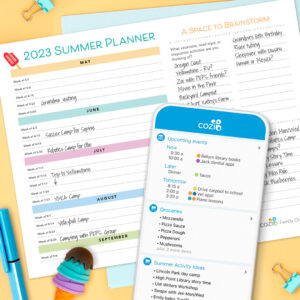As a housewife, you wear many hats. You’re a chef, a maid, a teacher, and a caregiver, all rolled into one. But amidst the chaos of daily life, unexpected expenses and household emergencies can arise, leaving you feeling overwhelmed and stressed. In this article, we’ll explore the common household emergencies and unexpected expenses that housewives face, and provide practical tips on how to navigate these challenges.
Common Household Emergencies
- Plumbing Issues: Leaks, burst pipes, and clogged drains can cause significant damage to your home and belongings. Act quickly to prevent further damage by shutting off the main water supply and calling a plumber.
- Appliance Breakdowns: When your washing machine, dishwasher, or refrigerator breaks down, it can disrupt your daily routine. Prioritize essential appliances and consider renting or borrowing alternatives until repairs are made.
- Power Outages: Losing power during extreme weather or maintenance can be frustrating. Prepare by keeping flashlights, batteries, and a first-aid kit on hand.
- Pest Infestations: Unwanted critters like rodents, ants, or cockroaches can invade your home. Seal entry points, clean up clutter, and consider professional extermination services.
Unexpected Expenses
- Car Repairs: When your vehicle breaks down, it can be a significant financial burden. Prioritize essential repairs and consider budgeting for regular maintenance.
- Medical Emergencies: Unexpected medical expenses can be stressful and costly. Consider investing in a health savings account (HSA) or catastrophic insurance plan.
- Home Maintenance: Regular maintenance can prevent costly repairs. Set aside a budget for annual inspections, HVAC maintenance, and other essential tasks.
- Pet Emergencies: Accidents, injuries, or illnesses can occur, leading to unexpected veterinary bills. Consider investing in pet insurance or setting aside a pet emergency fund.
Practical Tips for Navigating Household Emergencies and Unexpected Expenses
- Create a Budget: Prioritize essential expenses and allocate funds for unexpected expenses. Consider using the 50/30/20 rule: 50% for necessities, 30% for discretionary spending, and 20% for saving and debt repayment.
- Build an Emergency Fund: Aim to save 3-6 months’ worth of living expenses in a readily accessible savings account. This fund will help you cover unexpected expenses and avoid debt.
- Maintain Your Home: Regularly inspect and maintain your home to prevent costly repairs. Schedule annual inspections for HVAC systems, plumbing, and electrical work.
- Prepare for Emergencies: Keep essential supplies like flashlights, batteries, and a first-aid kit on hand. Create a household emergency kit with essentials like non-perishable food, water, and medications.
- Seek Support: Don’t be afraid to ask for help from family, friends, or neighbors. Share your concerns and receive emotional support and practical assistance.
- Stay Calm and Flexible: Unexpected expenses and emergencies can be stressful. Practice mindfulness, prioritize self-care, and adapt to changing circumstances.
- Review and Adjust: Regularly review your budget and emergency fund to ensure you’re prepared for unexpected expenses. Adjust your strategy as needed to stay on track.
Conclusion
As a housewife, you’re no stranger to chaos and unpredictability. By understanding common household emergencies and unexpected expenses, you can better prepare yourself for the unexpected. By creating a budget, building an emergency fund, and maintaining your home, you’ll be better equipped to navigate life’s surprises. Remember to stay calm, flexible, and open to support from others. With these practical tips, you’ll be better equipped to handle the unpredictable life of a housewife.












